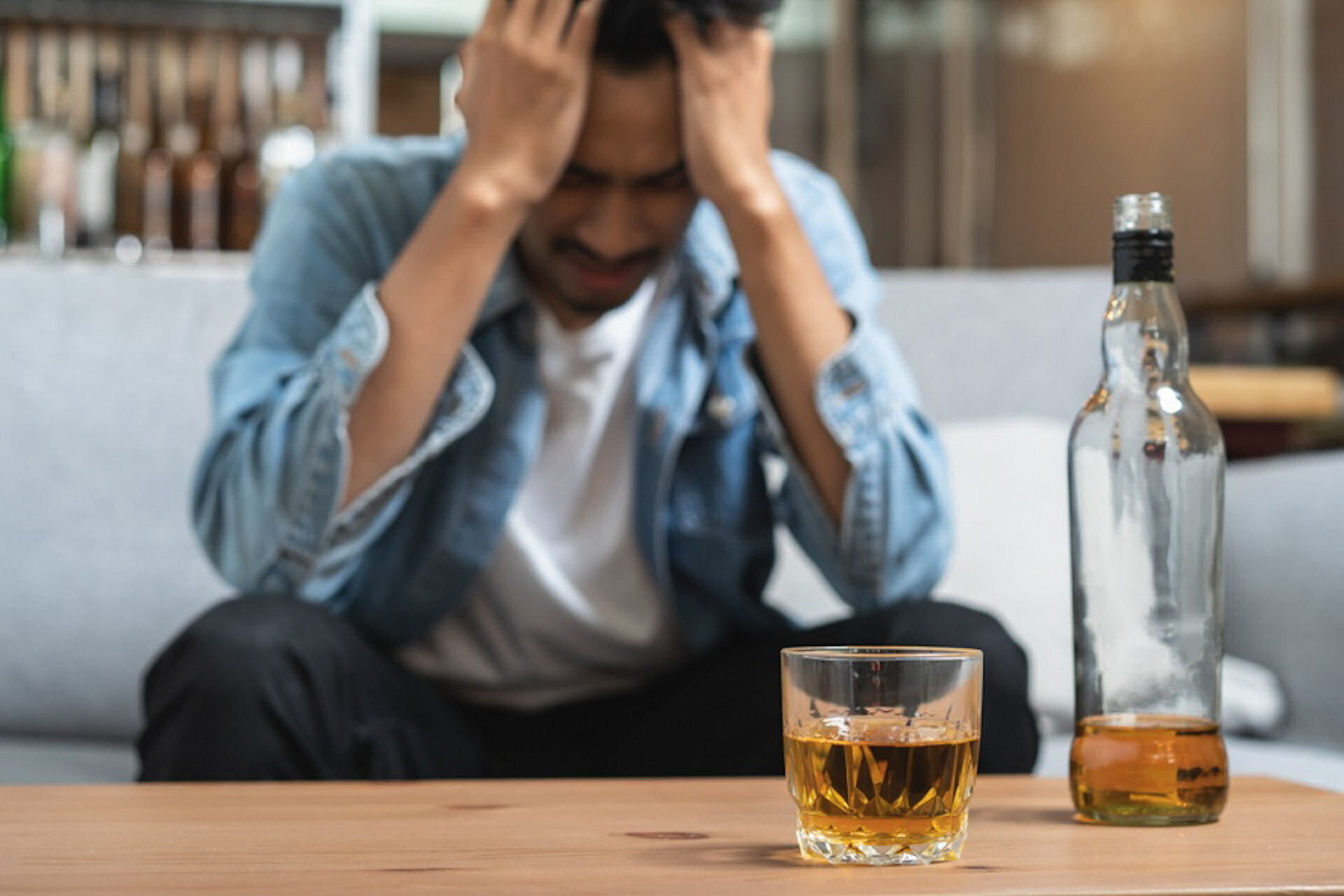As the election season approaches, many people experience a heightened sense of anxiety and stress. The constant barrage of political news and social media posts can be overwhelming, leading to feelings of fear, anger, and uncertainty. This increase in anxiety is often referred to as “election anxiety.”
While it’s normal to feel some level of anxiety during an election, for some individuals, this anxiety can become overwhelming and have detrimental effects on their mental health. Studies have shown that election anxiety can lead to increased rates of alcoholism and drug use.
Recent statistics indicate that the 2024 U.S. presidential election is a significant source of stress for many Americans. About 77% of adults report the future of the nation as a major stressor, with the election itself causing stress for 69% of respondents. This stress is slightly higher than in previous elections, with concerns about potential violence and the future of democracy being prominent.
Additionally, 73% of U.S. adults are anxious about the election. This heightened stress can lead to increased anxiety and tension, which may contribute to higher alcohol and drug use as individuals seek coping mechanisms. It’s important to manage stress through self-care practices, such as limiting social media, engaging in mindfulness, and maintaining supportive social connections.
At Westwind Recovery® in Los Angeles, California, we explore the factors that contribute to election anxiety, and how anxiety during election time can lead to alcoholism and drug use in our society employing coping mechanisms can work wonders in combatting election anxiety.
What Is Election Anxiety?

Election anxiety is a specific type of anxiety that is triggered by political events, particularly during election seasons. It is characterized by heightened stress and worries about the outcomes of elections and potential societal changes that may result from them.
Election anxiety can be intensified by constant media consumption and political discussions, leading to increased levels of stress and potentially harmful coping mechanisms such as substance use. This type of anxiety is often driven by concerns about the outcomes of elections and their potential impact on personal lives and society as a whole. Factors such as media overload, political polarization, and uncertainty about the future can exacerbate these feelings.
Election anxiety is different from regular anxiety because regular anxiety is a broad term that refers to a general feeling of worry or fear that can arise from various life situations. These situations might include work stress, financial concerns, health issues, or personal relationships.
Election anxiety peaks during election seasons when the outcomes can significantly impact personal lives and societal norms. Understanding the nuances between regular anxiety and election anxiety can empower individuals to approach their feelings with greater insight and develop tailored strategies to navigate these emotions effectively. Both types of anxiety are manageable with the right approach and support systems in place.
What Are the Effects of the Election on Addiction and Mental Health?
The election season can significantly impact mental health and contribute to addiction issues. The constant exposure to political news and social media can amplify stress and anxiety, leading to emotional distress. This heightened stress can exacerbate existing mental health conditions, such as anxiety disorders and depression, and may increase the risk of substance use as a coping mechanism.
To manage these effects, it’s important to set boundaries with media consumption, engage in self-care practices, and seek support when needed. Recognizing the psychological toll of election-related stress is crucial for maintaining mental and physical well-being.

How to Manage Addiction During Election Season
Election season can be a particularly stressful time, amplifying feelings of anxiety and tension, which may heighten the risk of substance use for those in recovery. Strategies to help manage addiction during the election season are as follows:
As a general rule of thumb, it’s advisable to set specific designated times to check news updates and avoid sensationalist media because this can reduce overwhelm from constant information exposure. Another tip that can combat election overwhelm is taking regular social media breaks, especially during peak election news periods.
Mindfulness involves focusing on the present moment and can help with grounding and managing anxiety effectively. By incorporating meditation, deep breathing exercises, or yoga, the mind will be able to remain in the now and relax. Aside from mindfulness activities, establishing a consistent regular self-care routine can combat mental health concerns such as anxiety and depression and improve overall stability.
Here at Westwind Recovery®, we understand the importance of taking on a holistic approach to mental health by offering the following experiential therapy programs:
Here at Westwind Recovery®, we believe in the importance of family and community involvement in the recovery journey. We offer family therapy as an important component in the recovery journey to improve overall communication and connect the family unit.
Attending group therapy sessions can help individuals struggling with substance abuse connect with others going through similar trials. Having a supportive community can work wonders for mental health and alleviate the stress of leaning into politics altogether; therefore welcoming a more positive atmosphere all around.
There are several strategies available for individuals to address and overcome election anxiety and substance use. However, there are certain instances where addiction therapy can be beneficial. Regular sessions with a mental health professional can provide support and coping strategies tailored to your specific needs. There are also times when medication management can be crucial to one’s overall recovery journey. If applicable, it’s important to work with your addiction therapist to see if medications will be conducive to your recovery.
How Did the Past Election Impact Alcoholism?
 According to a survey, 25% of adults said they were drinking more to cope with their emotions related to the past election. Additionally, data showed a spike in alcohol sales during the week leading up to Election Day, with beer sales increasing by 48%, wine by 34%, and spirits by 27%. This surge in alcohol consumption is concerning as it can lead to negative consequences such as accidents, injuries, and health problems.
According to a survey, 25% of adults said they were drinking more to cope with their emotions related to the past election. Additionally, data showed a spike in alcohol sales during the week leading up to Election Day, with beer sales increasing by 48%, wine by 34%, and spirits by 27%. This surge in alcohol consumption is concerning as it can lead to negative consequences such as accidents, injuries, and health problems.
Furthermore, political events can also trigger relapse for those in recovery from alcohol addiction. The added stress and emotions can weaken one’s resolve to stay sober, making it crucial for individuals in recovery to prioritize their well-being during the electoral process.
Remember that practicing self-compassion is crucial in this stage. By acknowledging your feelings and treating yourself with kindness, you can enhance your overall ability to cope with life challenges. By implementing these strategies, you can navigate the election season more effectively, maintaining your sobriety and mental health through implementing mental resilience.
The Psychological Impact of Elections: Navigating Mental Health During Political Seasons
Elections are pivotal events that shape the future of a nation, but they can also bring about significant psychological stress. As political campaigns intensify, individuals often find themselves grappling with heightened anxiety and tension. Understanding the psychological impact of elections is crucial for maintaining mental health during these stressful times.
Elections inherently involve uncertainty about the future, which can lead to elevated stress levels. Concerns about political outcomes, national stability, and personal beliefs being challenged contribute to this anxiety. According to recent studies, a substantial percentage of adults report heightened stress during election seasons, often exacerbated by the intense media coverage and political discourse.
Media and social media platforms play a significant role in amplifying election-related stress. The 24-hour news cycle and social networks bombard users with a constant stream of political updates and opinions. This can create echo chambers where individuals are exposed predominantly to reinforcing viewpoints, intensifying emotions and fostering polarization. As a result, many people experience increased anxiety, feelings of isolation, and even depression.
Political disagreements can strain personal relationships, particularly when family or friends hold opposing views. These conflicts can lead to heated debates, creating rifts and emotional distress. It’s important to approach political discussions with empathy and a willingness to understand differing perspectives while protecting your own mental health and overall peace.
The Link Between Elections and Substance Use: Understanding the Connection
Elections are not only pivotal in shaping the political landscape but can also have profound effects on public mental health, leading to increased substance use. The stress and anxiety that accompany political events often prompt individuals to seek coping mechanisms, sometimes resulting in higher alcohol and drug consumption.

During election periods, the uncertainty about future leadership and policies can elevate stress levels significantly. Many individuals experience heightened anxiety due to concerns about personal implications and broader societal impacts. This stress often becomes overwhelming as election day approaches, leading some to turn to substances for temporary relief.
Media coverage and social media platforms intensify election-related stress. The relentless cycle of news updates and opinion pieces can create an echo chamber effect, reinforcing existing beliefs and amplifying fears. Social media, in particular, exposes users to a barrage of political content, which can heighten anxiety and exacerbate the feeling of being constantly “on alert.” This environment can drive individuals to seek solace in substances as a way to unwind or escape the pressure.
Political polarization can further contribute to emotional distress, as individuals may feel alienated or at odds with friends and family members holding opposing views. The resulting tension can lead to social isolation and increased stress, making substances an appealing option for those seeking to cope with challenging interpersonal dynamics.
We Can Help Election Anxiety, Alcoholism, and Drug Use
If you or someone you know is struggling with election-related anxiety and increased substance use, we can help. Our expert therapists provide individualized treatment programs to manage stress and promote overall well-being. Remember, seeking help is the first step towards recovery and a healthier life.
So don’t hesitate to reach out if you need assistance. Take care of yourself, stay informed but also set boundaries, and remember that your mental health should always be a top priority. Let’s navigate through this election period together, with resilience and compassion toward ourselves and others. Contact us today for support in navigating these challenging times.
https://news.temple.edu/news/2024-10-29/taking-care-yourself-and-others-during-election-season
https://news.syr.edu/blog/2024/10/24/how-to-manage-your-stress-during-the-2024-election/
https://www.cmu.edu/news/stories/archives/2024/October/election-anxiety

Dr. Deena is the Chief Clinical Officer of Westwind Recovery®, an award-winning outpatient treatment center in Los Angeles where she oversees the clinical and administrative program and treatment methods. Dr. Deena is a doctor of psychology and licensed clinical social worker since 1993. LCSW #20628. Originally from the East Coast, Dr. Deena has worked running treatment centers, worked as a therapist in psychiatric hospitals as well as school settings and currently has a thriving private practice in the LA area. Dr. Deena has appeared regularly on the Dr. Phil Show as an expert since 2003. She has also been featured on many other TV shows, podcasts and has contributed to written publications as well as podcasts.




